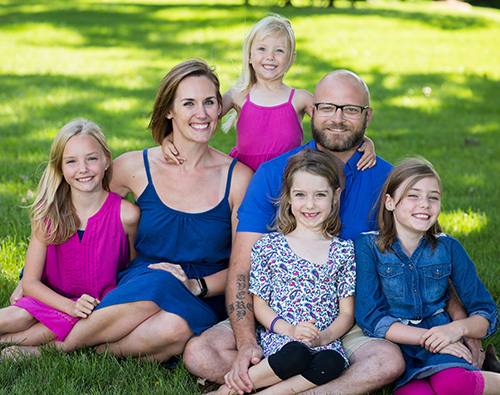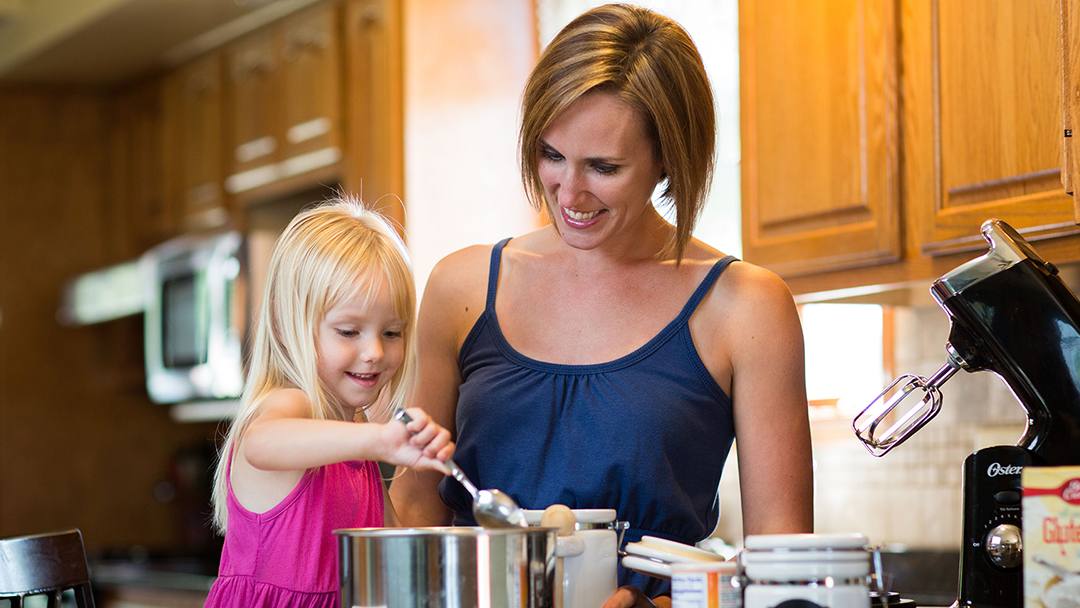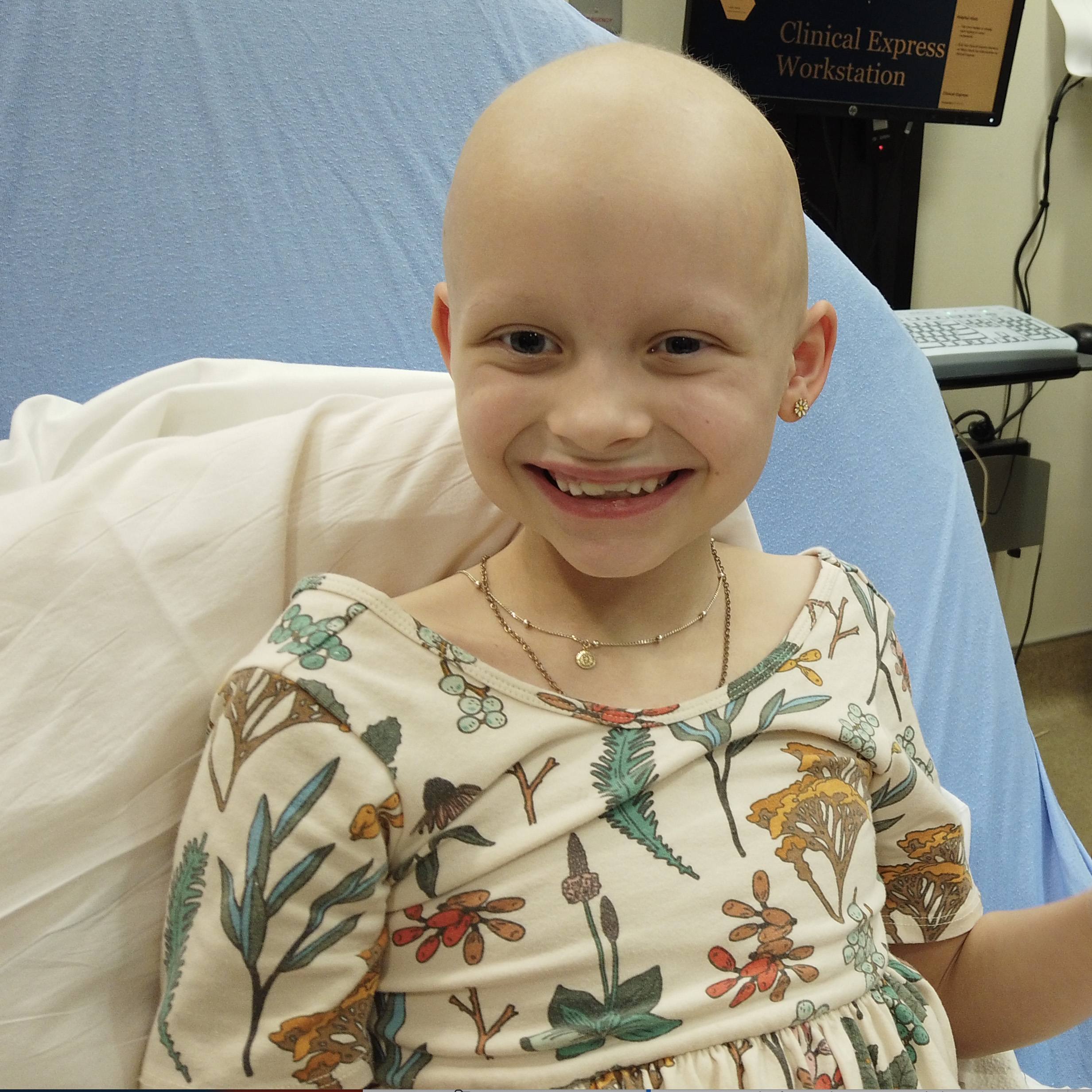-
Children's Center
Sharing Mayo Clinic: Family pulling together to help Hazel heal
Working with their Mayo health care provider in Family Medicine, Hazel Sargent's family is tackling the preschooler's diagnosis of celiac disease head-on.
For most of her young life, 3-year-old Hazel Sargent of Garden City, Minnesota, had tummy troubles. She was frequently constipated and never a big eater. Then one day in the spring of 2017, Hazel woke up from a nap and was lethargic.
"She didn't want to play or eat dinner," Sheri Sargent says of her daughter, the youngest of four girls. "The next day, we took her in to see what was going on."
After an examination and blood work, the family had their answer. Hazel had celiac disease. The condition triggers an immune reaction to eating gluten — a protein found in wheat, barley and rye. The reaction can damage the lining of the small intestine, preventing certain nutrients from being absorbed into the body. Symptoms include constipation, bloating and fatigue.
The diagnosis, while difficult, gave the family answers and a path to a better outlook for Hazel.
Life-changing news
Sheri and her husband, Josh, knew Hazel's diagnosis would mean lifestyle changes for the whole family. They also knew they would have someone to help guide them through those changes: Bonnie Steel, a Family Medicine nurse practitioner at Mayo Clinic Health System in Mankato, Minnesota. Steel has been Hazel's primary care provider since birth. Family Medicine providers like Steel care for patients of all ages and stages of life.
"Bonnie was really great," Sheri says. "She very much wanted to make sure our questions were answered and set us up with appointments to see a nutritionist and pediatric gastroenterologist."
Those appointments gave Sheri and Josh a better understanding of celiac disease. While there's no cure, a gluten-free diet can help manage celiac disease symptoms.
"Josh and I have been impressed at how quickly Hazel has adapted to her new diet. She will now ask if a meal or snack is gluten-free before she will eat it."
Shari Sargent
"Living healthy with celiac is a challenge because it affects so many things," Steel says, adding that she's been impressed by how the Sargent family has handled the diagnosis. "They are making this a new normal and not letting it define, control or defeat them."The family has been making a concerted effort to work together to manage Hazel's condition.
"The biggest change has been going through our kitchen," Shari says. "We have a separate cupboard for Hazel with gluten-free bread and snacks. All of our family meals are now gluten-free. We don't want Hazel to feel deprived."
Those efforts are paying off.
 "Josh and I have been impressed at how quickly Hazel has adapted to her new diet," Sheri says. "She will now ask if a meal or snack is gluten-free before she will eat it. Hazel has been eating a ton and asking for seconds and thirds. She's gained weight and has so much energy now."
"Josh and I have been impressed at how quickly Hazel has adapted to her new diet," Sheri says. "She will now ask if a meal or snack is gluten-free before she will eat it. Hazel has been eating a ton and asking for seconds and thirds. She's gained weight and has so much energy now."
Family-focused care
The change in Hazel's health is a welcome one for the Sargents and for Steel. "I have been so excited about how the family has approached this big diagnosis and how much better Hazel is now," says Steel, who also cares for other members of the Sargent family. Steel says that caring for multiple members of a family has benefits for patients.
"It gives us a better understanding of the family health history," she says. "Many times health is a reflection of so many things that are part of a family, including genetics and lifestyle. The choices we make and the things we do are influenced by our family and community."
Steel says caring for whole families benefits her as a provider, as well.
"I feel like I really know, connect and understand each member of the family better. I share in their joys and sorrows," she says, adding that it's both rewarding and humbling to work with families like the Sargents. "I feel honored to be able to care for them."
Note: A version of this story originally appeared in Hometown Health.
HELPFUL LINKS
- Read more about celiac disease.
- Learn about Family Medicine.
- Explore Mayo Clinic Health System.
- Request an appointment.
Related Articles








